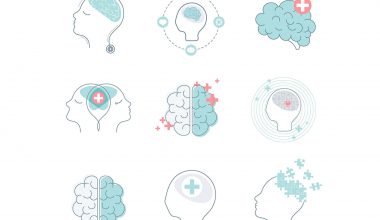According to Google and AI information, Annually worldwide over 300,000 cases of brain tumors have been reported. The brain is the most sensitive organ in the human body. People of any age can get brain tumors. Both men and women can be affected. Any adult can get brain tumors. Even children can get brain tumors. And, therefore, extra awareness is needed to deal with it. If this disease is detected at an early stage and treated on time, this disease is completely curable.
What is a brain tumor?
In the human body, cells divide in a specific way. Brain tumor is a condition in which brain cells grow and divide abnormally. It can be cancerous (malignant) or non-cancerous (benign). The human brain is divided into two separate chambers. These two chambers are divided into an upper part and a lower part. These two chambers are separated by a membrane called the tentorium. Tumors can occur in either of the two chambers. In adults, the rate of tumors in the upper chamber is higher. In children, tumors are more common in the lower chamber.
What Causes Brain Tumors?
The exact cause of brain tumors is not yet known. However, according to experts, this disease is caused by three main reasons.
1. Genetic mutation.
2. Environmental toxins.
3. Radiation exposure.
In addition, the human body has some tumor suppressor genes, which prevent the process of tumor formation. If for some reason these genes do not work properly, brain tumors can occur.
Symptoms:
There are many types of symptoms of brain tumors, some of which are:
1. Severe headache.
2. Vomiting or nausea.
3. Blurred vision.
4. Slurred speech.
5. Difficulty recognizing colors.
6. Loss of balance.
8. Body convulsions.
9. Dizziness while walking.

What to do after diagnosis:
You should consult a neuromedicine or neurosurgery professional right away if you suspect a brain tumor. After speaking with a physician, you should then have the required tests performed. For the diagnosis of brain tumors, brain MRIs and CT scans are crucial and essential tests. The purpose of an electroencephalography, or EEG, exam is to see how the neurological system functions. To determine the nervous system’s conduction capability, an electromyography test is required. A highly safe and accurate test for identifying any tumor or cancer is CT-guided FNAC. Furthermore, in order to get an appropriate diagnosis, a portion of the impacted cells are removed during the stereoscopic biopsy test and seen under a microscope using a particular dye. Neuronavigation aided surgery is another extremely contemporary and successful technique for identifying brain tumors.
Types of Brain Tumors:
Tumors come in two primary varieties. There are two types of tumors: benign and malignant or cancerous. Primary tumors and secondary or metastatic tumors are the two additional types into which cancerous tumors can be separated.
Difference between malignant and benign brain tumors
Cancer cells that proliferate in brain tissue and disrupt regular brain function are known as malignant brain tumors. Malignant tumors are categorized according to their size and rate of growth. Conversely, benign tumors are not malignant.
Treatment:
The location, kind, size, and severity of brain tumors all affect how they are treated. In this instance, surgery may be required to remove the tumor. In this instance, a microscope is used to assist in the operation of a brain tumor.
Another advanced surgical technique is endoscopy. This technique involves operating on pituitary tumors through the nostrils without making any incisions in the skull. The majority of the time, surgery can eradicate brain tumors entirely. It is contingent upon the tumor’s location and nature, though. Chemotherapy and radiation therapy may also be necessary in some situations. On the other hand, therapy is quite simple if the illness is identified early. And a person can regain full health with the right care and a regulated lifestyle.
nethun
I am Md. Shahriar Pervez. I am a professional blogger and Youtuber. I complete my graduate from AIUB. Please visit this blog to get more information. SUBSCRIBE to this website and stay with us.




